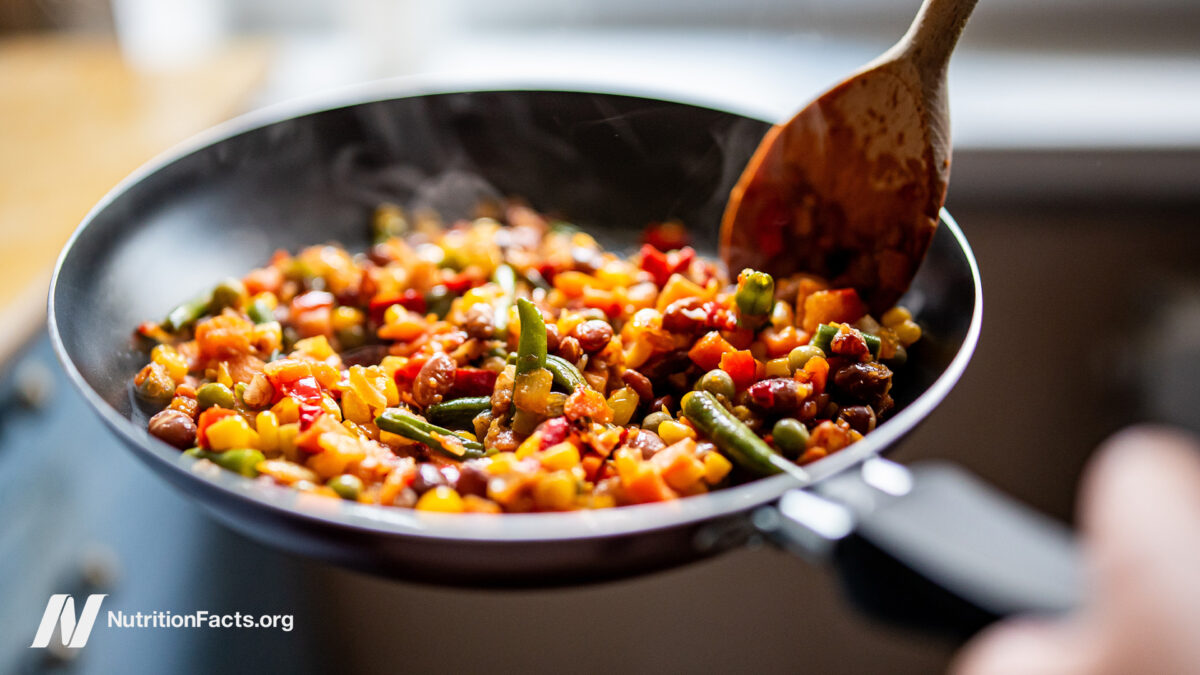Are Expensive Eggs Actually 'Better' for You?
Of all of the foods I buy on a regular basis, the price of eggs varies the most. They can cost two bucks for 18 or seven whole American dollars per dozen—a pretty big discrepancy for a quite basic...


Photo: Tetiana_Didenko (Shutterstock)
Of all of the foods I buy on a regular basis, the price of eggs varies the most. They can cost two bucks for 18 or seven whole American dollars per dozen—a pretty big discrepancy for a quite basic food.
Egg cartons have a lot of words printed all over them, and the presence of some of them seems to affect the price of the eggs inside more than others—particularly “organic” and “free-range.” You can read all about what those words actually mean here, but even with that knowledge, it can be hard to know if the more expensive eggs are “worth it,” especially if you are trying to feed yourself or your family on a budget.
Are expensive eggs better for you?
In order to truly answer that question, you would have to conduct a lab study comparing all the different egg brands on the shelf. I personally do not have time for that (nor access to a laboratory), but this recent article from the CBC Marketplace does provide a few interesting data points to consider:
Marketplace at random purchased two cartons each of several types of eggs from 14 brands from grocery stores across the Greater Toronto Area. In total, the team sent 29-dozen eggs to an accredited food science laboratory to test levels of cholesterol, protein and omega-3, as well as vitamins A, D and E.
Levels of omega-3 fatty acids were consistently higher in the organic eggs:
In all cases, the organic eggs did have higher omega-3 levels compared to their conventional counterparts. There was an average of 0.13 g of omega-3 per one large organic egg compared to about 0.05 g for conventional eggs.
G/O Media may get a commission

23% Off
Shark Ion Robot Vacuum
Keep it clean
Features three different brush types, learns the layout of your home to avoid getting stuck and damaging things, and can be controlled via an app on your phone.
But with that exception, “organic” eggs, particularly from large producers, didn’t guarantee a more nutritious egg, especially in comparison to conventional eggs from the same brand:
On average, there were also no large differences between the cheaper conventional eggs and the more expensive organic ones that are sold by the same brands...In fact, in some cases the conventional eggs had higher levels of some vitamins than their organic counterparts. This was the case for Burnbrae Naturegg organic eggs when compared to Burnbrae’s cheaper Prestige eggs, and the Loblaw President’s Choice Organics eggs compared to Loblaw No Name eggs. When it came to Sobeys Compliments eggs, there was more vitamin E in the conventional than in the organic, but LH Gray’s Organic GoldEgg had more vitamin D than the cheaper Gray Ridge Premium eggs.
None of the named brands are sold in the United States, but this data suggests an organic label on a carton of eggs is no guarantee the chickens that laid them were fed a more nutritious diet. In Canada and the United States, an “organic” label doesn’t necessarily dictate what the type of food a chicken has access to.
According to organicconsumers.org, the USDA’s “National Organic Program,” requires organic eggs “come from chickens that are raised cage-free, fed an organic diet grown without pesticides, managed without antibiotics and hormones, and have seasonal access to the outdoors.”
In Canada, “Organic eggs come from hens raised in a free range system with access to the outdoors. These hens are fed certified organic feed, and farmers follow the Canadian Organic Standards regulated by the Canadian Food Inspection Agency.”
Neither country specifies what the chickens must be fed for their eggs to be certified, only that whatever they eat must be “grown without pesticides.” There’s no guarantee the chickens were fed the sort of varied, nutritious diet that could translate to more nutritious eggs.
The size of the farm seems to matter more than the organic label
A big part of running a company involves cutting costs while maximizing profit, and large companies tend to be particularly ruthless about it. Organic labels don’t tell us all that much about an individual chicken’s quality of life or access to a varied diet. Flock size and access to outdoor spaces seem to have a more direct effect on nutrition, and the CBC Marketplace study found eggs from smaller farms were more nutritious overall:
The small-farm organic eggs had an average of 3.25 mg of vitamin E per one large egg, which is about 20 per cent of the daily recommended value. The big-brand organic eggs had an average of 2.16 mg of vitamin E. The level of vitamin D in the small-farm organic eggs was an average of 31.65 IU, which is about five per cent of the daily recommended value. In the big-brand organic eggs, this average was 20.50 IU.
The small-farm organic eggs also had about one gram more of protein per large egg than the eggs sold by the larger brands, and had slightly less cholesterol.
What does it all mean?
Paying more for eggs does not necessarily mean you are getting a more nutritious egg, particularly if you are buying organic eggs from large companies. Eggs from smaller farms are likely to be more nutritious because the hens are more likely to enjoy a more varied nutritious diet and are more likely to go outside (and perhaps enjoy a worm or two), and this usually translates into “better” eggs. (And more expensive ones.)
A pasture-raised egg is more likely to be more nutritious than a super cheap factory-farmed egg, but even the cheapest egg contains protein and vitamins, and eating a couple of eggs—not matter how cheap—is rarely a bad choice, health-wise (unless you are really watching your cholesterol, I guess).
There is no ethical consumption under capitalism, but I still try to buy eggs from sellers who treat their chickens with as much care as possible (this scorecard is useful in that regard), and I have found that the yolks of these eggs tend to taste richer than those in super cheap eggs, even when mixed into recipes like these mashed potatoes or homemade mayo.
If you really want to get the “best” eggs available to you, do a little research, conduct a few taste tests, and pick an egg that fits your palate and budget. Just don’t assume “organic” means “better for you,” especially if your organic eggs came from a massive corporate mega-farm.

 Hollif
Hollif 































